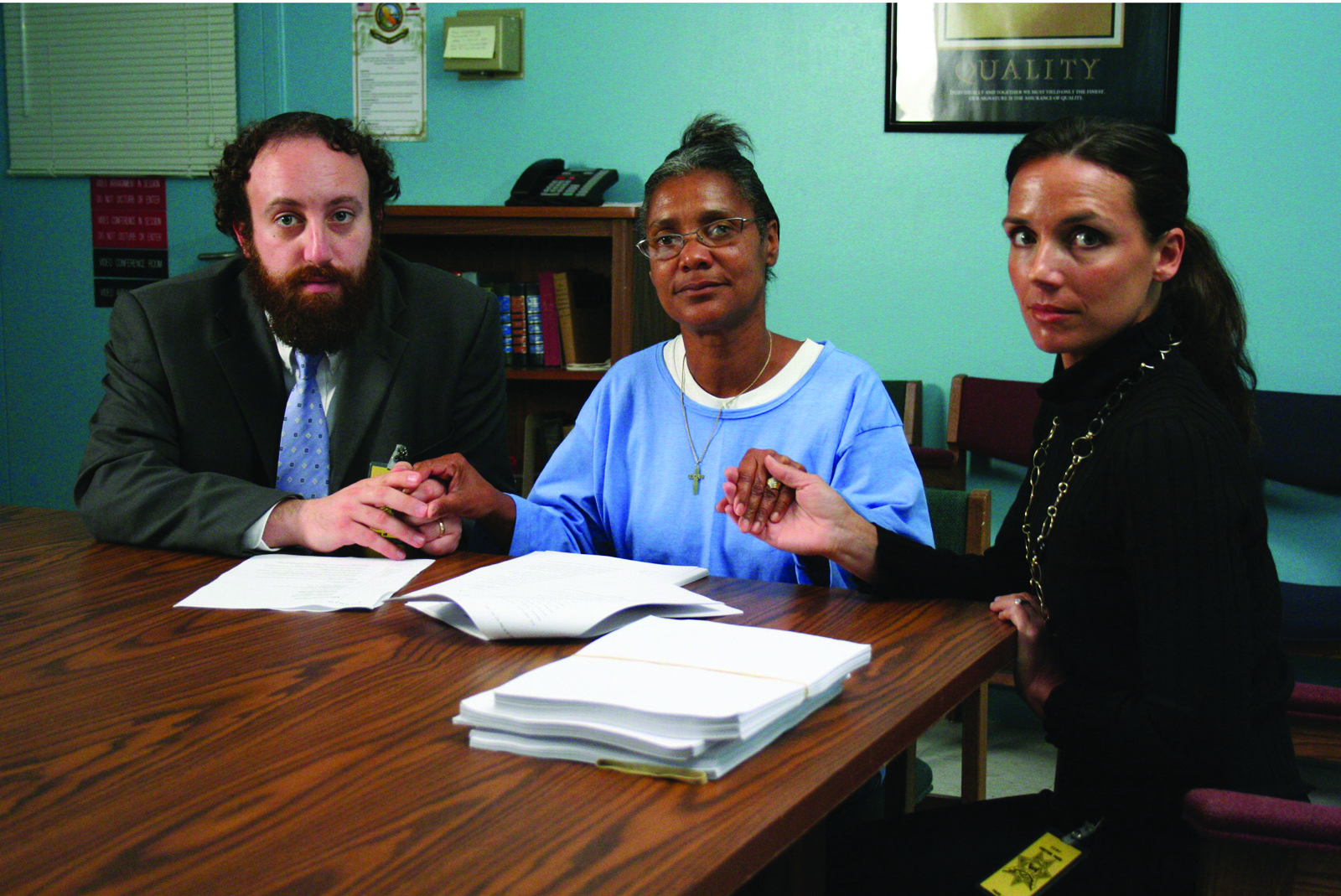arts@sfbg.com
FILM In 1983, Deborah Peagler was sentenced to 25 years to life for first-degree murder in the death of her former boyfriend Oliver Wilson, whom two local L.A. gang members had strangled — supposedly at her behest, to access Wilson’s life insurance money.
Encouraged to plead guilty to avoid the death penalty, Peagler had a juryless trial and was quickly shunted off to prison. There she was repeatedly turned down for parole despite spending the years of her incarceration as a church leader, mentor, and tutor to other inmates; a highly skilled electronics-assembly supervisor; earning two degrees; and sustaining good long-distance relationships with her two daughters. Even most of the victim’s surviving relatives had come to believe she should have been released years earlier. For her part, Peagler always claimed she intended Wilson to be beaten, but had not asked for or condoned his murder.
What was missing (or suppressed) from the original trial were the myriad reasons she’d wanted to frighten him away from herself and her family. She was a pregnant 15-year-old high schooler when she first met Wilson, a charismatic sometimes model who charmed her by taking a fatherly interest in her firstborn. But when money got tight, he abruptly insisted she turn tricks. Initial refusal brought beatings that only increased over time despite her reluctant subsequent acquiescence, stopping just briefly when she bore his own child.
Soon Wilson was dealing drugs, then taking drugs; he kept Peagler a virtual prisoner, refusing to let her speak to friends or relatives. When an eviction forced their temporary separation, he stormed into her family’s home with two armed men, threatening to kill them all. For this he was jailed exactly one night, making new death threats in retaliation for the police being called at all. At this point in 1982 she contacted the Crips members (who viewed that home invasion by an outsider in their territory as a serious offense) to frighten Wilson away before he actually killed anyone.
At the time of her trial, testimony on “battering and its effects” were not allowed as circumstantial evidence in California courts, despite — as we now know — the overwhelming majority of U.S. women being victims of domestic violence, rape, or other abuses. (In 1979 President Carter gave a huge boost to the nascent overall cause by establishing the Federal Office of Domestic Violence. Two years later, Reagan shuttered it.) In 1992 that changed, allowing new cases to benefit — although cases already tried could not be re-opened with evidence previously excluded.
A decade later that, too, changed. Walnut Creek attorneys Nadia Costa and Joshua Safran agreed to take on Peagler’s case pro bono, stepping well outside their usual land-use litigation. They launched what turned into years of effort during which her cause becomes a public cause célèbre, and indications emerge of some very ugly misconduct by the District Attorney’s office.
This battle — all the above is just a starting point — is chronicled in Bay Area filmmaker Yoav Potash’s documentary Crime After Crime. It’s a story with plenty of lurid and tragic revelations, ranging from child sexual abuse to terminal illness to hidden evidence of perjury. After a certain point it becomes clear the D.A.’s office isn’t opposing Peagler’s release because she’s guilty as charged (though nearly everyone by then agrees she should have been tried for manslaughter with a maximum sentence of six years), but because it has dirty secrets of its own to protect and deny.
Crime After Crime won’t exactly stoke your faith in the justice system. But this thoroughly engrossing document does affirm that there is hope good people can and will fight the system — even if, alas, it sometimes takes nearly three to score one bittersweet win.
Crime After Crime opens Fri/5 in Bay Area theaters.

